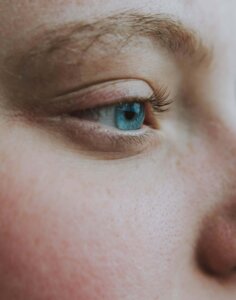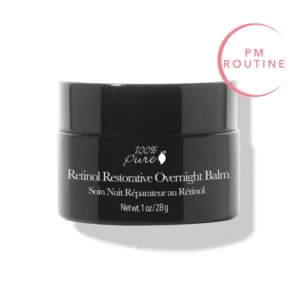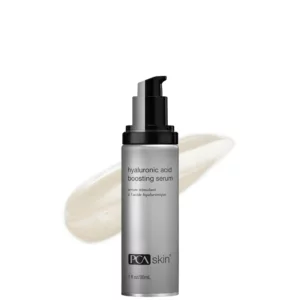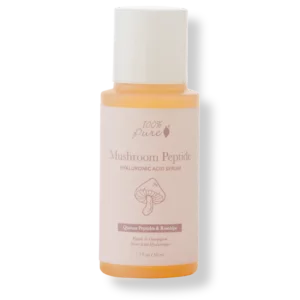What Works and What Doesn’t

Wrinkles are a natural part of the aging process, but that doesn’t mean we can’t take steps to reduce their appearance and maintain youthful-looking skin. In the world of skincare, numerous treatments claim to be effective in reducing wrinkles, but not all deliver the desired results. In this blog post, we will explore the treatments that truly work and those that fall short. From skincare ingredients and professional procedures to lifestyle changes, we will delve into the realm of wrinkle treatments to help you make informed decisions and achieve smoother, more youthful skin.
Skincare Ingredients that Work
a) Retinoids
Retinoids, derivatives of vitamin A, are proven to be highly effective in reducing the appearance of wrinkles. They stimulate collagen production, promote cell turnover, and improve skin texture. Look for over-the-counter products containing retinol or consult with a dermatologist for prescription-strength retinoids.
Retinol Restorative Overnight Balm

b) Hyaluronic Acid
Hyaluronic acid is a powerful humectant that attracts and retains moisture, plumping the skin and minimizing the appearance of wrinkles. It hydrates the skin, improving its elasticity and smoothness. Look for hyaluronic acid in moisturizers, serums, and facial masks.
PCA SKIN Hyaluronic Acid Boosting Serum

c) Peptides
Peptides are short chains of amino acids that stimulate collagen production, improving skin firmness and reducing wrinkles. Look for skincare products containing peptides, such as peptide serums or creams.

Professional Procedures for Wrinkle Reduction
a) Botox
Botox injections are a popular and effective treatment for reducing wrinkles, particularly in the forehead and around the eyes. Botox temporarily relaxes the muscles responsible for causing dynamic wrinkles, resulting in a smoother appearance. It is a safe and minimally invasive procedure when performed by a trained professional.
b) Dermal Fillers
Dermal fillers, such as hyaluronic acid or collagen-based fillers, can be injected into deep wrinkles or areas of volume loss to plump the skin and smooth out wrinkles. Fillers can provide immediate results and last several months to a year, depending on the type used.
c) Chemical Peels
Chemical peels involve the application of a chemical solution to the skin, which exfoliates the outer layers, stimulates collagen production, and reduces the appearance of fine lines and wrinkles. Different depths of peels are available, and the intensity can be adjusted based on your specific needs and desired results.
Lifestyle Changes for Wrinkle Prevention
a) Sun Protection
The sun is a major contributor to premature skin aging and wrinkle formation. Protect your skin by wearing sunscreen daily with a high SPF, seeking shade during peak sun hours, and wearing protective clothing, such as hats and sunglasses.
b) Healthy Diet
A balanced diet rich in fruits, vegetables, lean proteins, and omega-3 fatty acids can help promote healthy skin. Antioxidant-rich foods, such as berries and leafy greens, can combat free radical damage and help maintain collagen production.
c) Proper Skincare Routine
Establishing a consistent skincare routine is essential for wrinkle prevention. Cleanse your face twice daily, moisturize, and use products with anti-aging ingredients, such as retinoids and hyaluronic acid. Don’t forget to exfoliate regularly to remove dead skin cells and promote cell turnover.
Treatments with Limited Evidence
While there are countless treatments on the market claiming to reduce wrinkles, some have limited scientific evidence to support their effectiveness. These include:
- Facial exercises: While facial exercises may help improve muscle tone, their impact on wrinkle reduction is not well-documented.
- Copper peptides: Although copper peptides have shown potential in promoting wound healing and collagen synthesis, more research is needed to determine their effectiveness in reducing wrinkles.
- Topical vitamin C: While vitamin C is an antioxidant that can help protect the skin from free radical damage, its direct impact on wrinkle reduction is still debated among experts.
Conclusion
When it comes to treating wrinkles, it’s important to separate fact from fiction. Effective treatments for wrinkles include skincare ingredients like retinoids, hyaluronic acid, and peptides, as well as professional procedures like Botox, dermal fillers, and chemical peels. Additionally, lifestyle changes such as sun protection, a healthy diet, and a proper skincare routine can help prevent further wrinkle formation. While some treatments have limited evidence, it’s always best to consult with a dermatologist or skincare professional to determine the most suitable and evidence-based approach for your individual needs.




